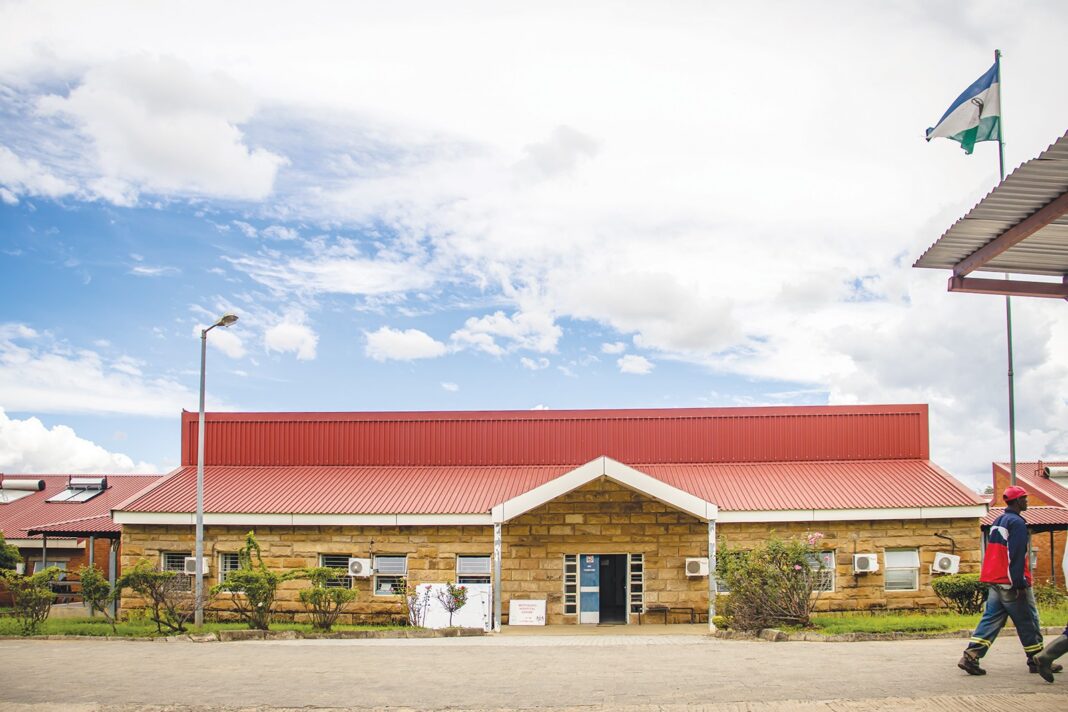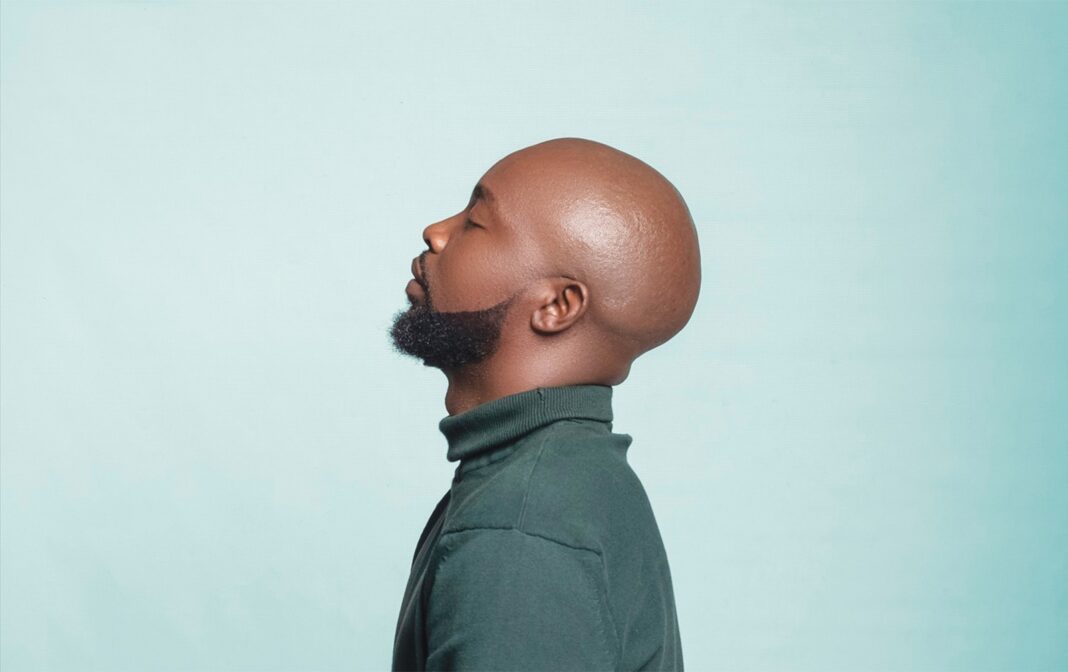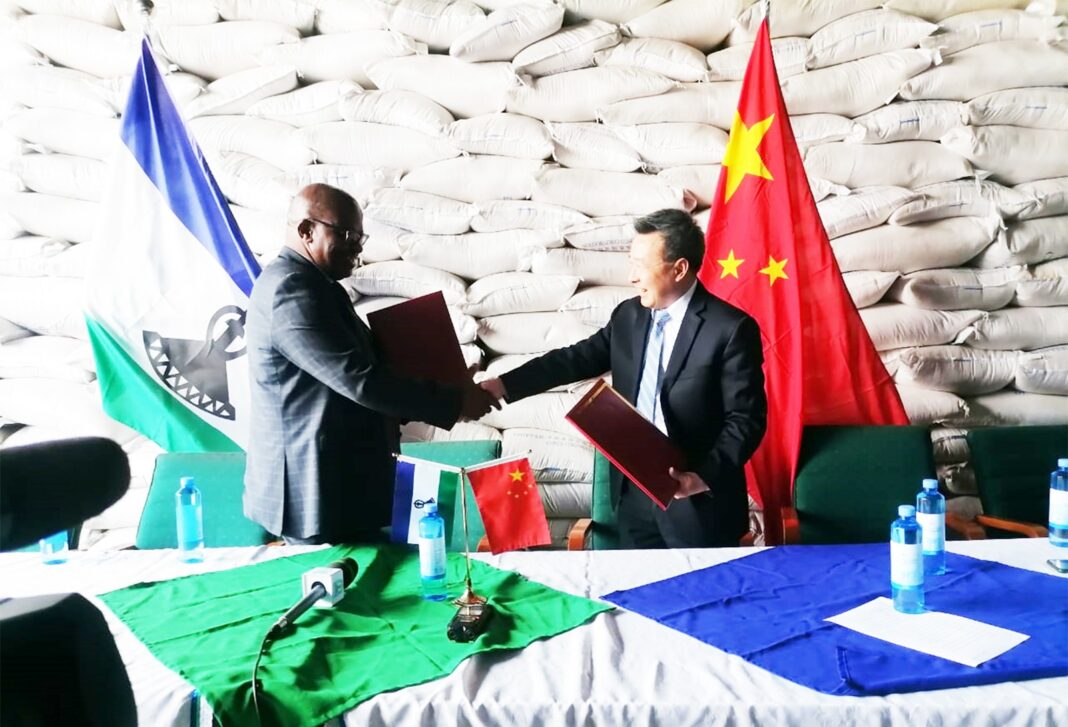By Seleoe Nonyane
Christian Health Association of Lesotho (CHAL) health centres are struggling to cope with an influx of patients after doctors at government facilities resolved not to work after hours since March this year.
The Lesotho Medical Association (LMA) released a statement on February 20 2023 informing the general public that government hospital doctors would not be partaking in any duties that they are not paid for starting March 1 2023.
The association said that for the past five years doctors in the public sector have been working beyond ordinary hours without pay which includes working during nights, weekends and public holidays without any form of remuneration.
This has since led to the doctors becoming unavailable to attend to patients after 5.00pm.
CHAL advocacy and communications officer, Lebohang Liphapang says it was always inevitable that their hospitals and clinics would experience a sudden influx of patients, given that they are a more affordable alternative to private hospitals.
Liphapang indicated that CHAL hospitals charge the same fees as government-owned health centres, making them easily accessible.
“Patients normally visit hospitals that are nearest to them, so this is no longer possible with the strike, especially after hours. It means patients now have to incur more costs to access medical services.
“We have seen a marked spike in the population of patients at all CHALs health centres in the country, and this is proving to be a huge challenge for us. This is most evident after working hours,” he says.
The doctors’ strike has left nurses to the own devices, as they are now forced to attend to patients.
A nurse at Motebang Government Hospital in Leribe, ‘Marapelang Ntene, said they had stopped admitting patients after 4:30pm when there are no doctors available.
“We turn them back and tell them to come the next day, or go to the nearest CHAL or private hospitals.
“It is heart-breaking to turn a patient back, but our hands are tied. We do not attend to patients, no matter how much pain they are in. This includes expectant women even if they are in labour, lest we encounter complications that specifically need a doctor.
“To protect ourselves from making errors that we may find ourselves liable for, we refer them to CHAL or private hospitals,” she said in a recent interview.
Ntene noted that there had been a slight decline in the number of patients coming in after hours since the commencement of the strike.
“But they still do come and it turns out they are not aware of these developments as they always appear surprised when we tell them they cannot be helped,” she added.
Meanwhile, LMA president Mojakisane Ramafikeng says doctors used to be paid overtime money but this stopped five years ago.
“We only got to know about this in a meeting with the ministry of health, where we were told the ministry had decided to put a halt to call allowances. We were never told how and why the ministry had arrived at this decision,” he said in a separate interview.
“The basic rule is that an employer has to pay employees according to the work they are expected to do. We will continue with our strike until we are paid what is rightfully due to us. What is encouraging is that government has expressed willingness to pay the money owed to doctors, and even told us they are in the process of allocating it.
“We are not entirely convinced, though. And we stand by our position not to work extra hours until we have been paid. We have had enough of mere lip service and false promises by previous governments,” he added.
In another development, the ministry of health’s public relations manager, ‘Mamolise Falatsa, confirmed that they were working on paying the doctors their arrears.
Falatsa told theReporter last week that the only hitch was that the doctors themselves had not provided the ministry with all the required documents and information such as their physical addresses.
“It was agreed that for them to be given the money they should provide the ministry with proof that they that they did take the call time. This is done because we need to know who took the call time so that everyone can be allocated the money accordingly, as some doctors are no longer in government service. The doctors are not cooperative; not all of them have submitted the required information,” she explained.
She said that the doctors were the ones to blame for the delay.
She further indicated that the call allowance was not budgeted for by the previous government as there was no data showing how much each doctor was owed.
“This notwithstanding, the fact is that the then minister of health went out of his way to ask our finance section to include the doctors’ arrears in the budget, which they did.”
Falatsa said what was remaining is for the doctors to cooperate so that they can receive their dues and get back to work.
She added that she recently witnessed an expectant woman in labour being referred to another hospital when she was brought to Mokhotlong government hospital.
The nurses were reluctant to attend to her lest they become liable if complications happened, she said.
In the meantime, patients appear to have come to terms with the reality that doctors at government hospitals do no work after hours and on weekends.
When this publication visited Queen Elizabeth II Hospital at 6.00pm on Wednesday, the premises were vacated and there was no one except security guards.









